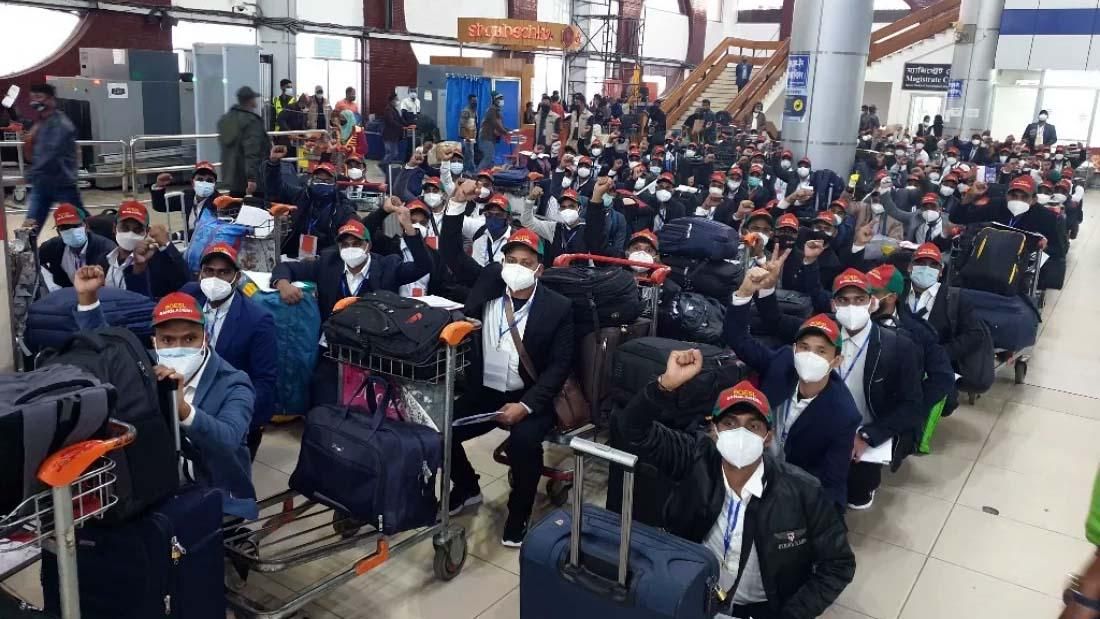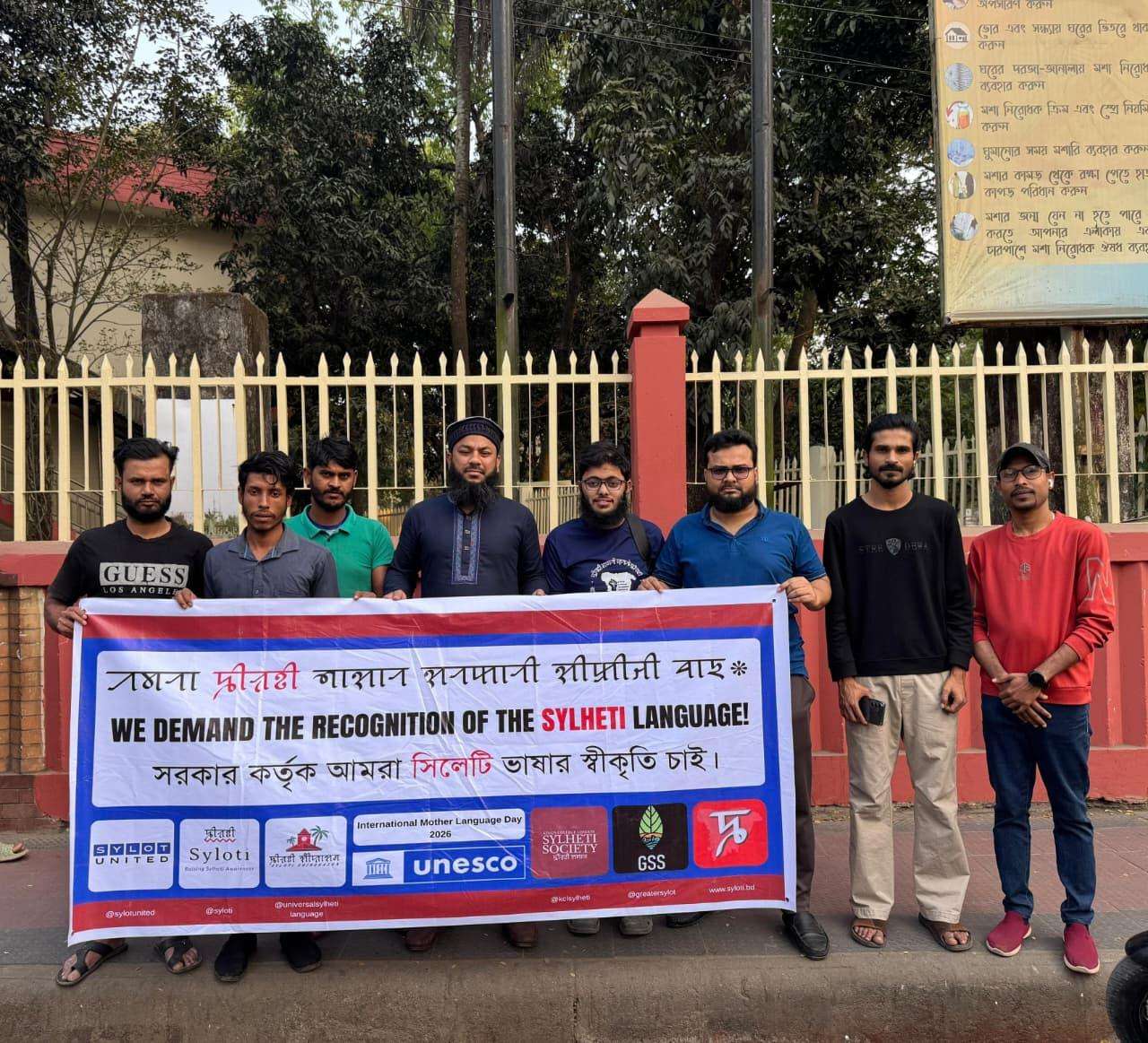The manpower export of Bangladesh during the month of September increased 20.98 per cent, thanks to the rise in manpower export to Saudi Arabia, according to the statistics of the Bureau of Manpower, Employment and Training (BMET).
Bangladesh exported a total of 28,251 workers to Saudi Arabia during the month of August, but increased to 44, 249 workers during the month of September.
However, the manpower of Bangladesh during the period of January-September of 2024 dropped 40 per cent compared to the same period of previous 2023 showing a negative signal to overseas employment, according to the Statistics of the Bureau of Manpower, Employment and Training (BMET).
Bangladesh exported a total of 698,558 workers during the period of January-September of 2024 as against 989,685 workers during the same period of 2023.
Meanwhile, reassuring decent working conditions, Malaysian Prime Minister Anwar Ibrahim said his government will give immediate attention to the fresh entry of 18,000 Bangladeshi workers to Malaysia in the first phase subject to all conditions are met.
“We have discussed the whole system. And we have gone through very transparent procedures. We need workers but they can’t be treated as modern slaves no matter if they are from Bangladesh or other countries. I said this publicly in the past like now,” he said while responding to a question from UNB during a joint press appearance with Chief Adviser Prof Muhammad Yunus.
The Malaysian Prime Minister, however, reminded Bangladesh to remain careful and distinguish things urging not to defend criminal actions by anyone – either Malaysians or foreigners in Malaysia.
Chief Adviser Prof Yunus expressed his gratitude to the Malaysian Prime Minister on behalf of all the people in the country for making this announcement on the worker issue.
An estimated 800,000 Bangladeshis now live and work in Malaysia. Of them, about 450,000 migrated between August 2022 and May this year.
Chief Adviser Prof Yunus and the Malaysian Prime Minister had a brief one-on-one meeting at the Hazrat Shahjalal Airport before their bilateral talks at Hotel InterContinental.
The manpower export of Bangladesh dropped in the month of August showing a negative signal in the export of manpower in different countries, according to the Statistics of the Bureau of Manpower, Employment and Training (BMET).
Bangladesh exported a total of 53,462 in the month of August as against 71,441 workers to different countries during the month of July, clocking 25.17 per cent negative growth over the previous month of July, 2024.
Bangladesh exported a total of 633,881 workers during the January-August period of 2024 as against 882101 workers during January-August period of the 2023 showing over 28 per cent negative growth, according to BMET
Bangladesh exported a total of 55,045 workers in the month of June, 2024
Bangladesh exported only two and eleven persons during the month of July to Oman and Malaysia, two major export markets of the country.
Bangladesh should start exploring new labour market as the manpower export to Malaysia—the second largest destination of Bangladeshi workers after the Kingdom of Saudi Arabia, and Oman—the second largest destination of Bangladeshi workers in the Gulf countries – virtually remained closed after May 31, 2024, according to available sources said.
Bangladesh exported a total of 92,906 workers to Malaysia, the Southeast Asian country (26.94 per cent of total export) during the January–August (only 158 workers went to Malaysia in July and August) period of the current calendar year, according to the Statistics of the Bureau of Manpower, Employment and Training (BMET).
Deputy High Commissioner of Bangladesh High Commission in Kuala Lumpur, Malaysia Khorshed Khastagir while talking to this correspondent recently said “Bangladesh exported a total of 351,683 workers (26.94 per cent of total export ) in 2023 and a total of 92,685 during the January-June, 2024 with total of 444,368 workers during the last 18 months. The Malaysia government has stopped recruitment of new manpower as quotas are being filled up in the Southeast Asian country.”
Meanwhile, the Ministry of Transport, Communications and Information Technology of Oman is implementing several initiatives to enhance employment opportunities in two distinct sectors: “the transport and logistics sector” and “the communications and information technology sector”. The initiatives focus on operating governance and endorsing necessary policies to regulate the labour market within the framework of Oman Vision 2040, said Arabian Daily News, a top Oman English daily.
Eng. Said bin Hamoud Al Ma’awali, Minister of Transport, Communications and Information Technology, affirmed that the Ministry would announce some jobs intended to be allocated entirely to Omanis from January 2025 to the end of 2027, after liaising with the Ministry of Labour.
The Ministry of Transport, Communications and Information Technology’s plan envisages 20% Omanization in the “transportation and logistics sector” and 31% Omanization in the “communications and information technology sector”, said the minister.
He added that the Ministry’s strategy sets a minimum level for the employment of Omanis in proportion to the growth of professions related to the above mentioned two sectors. Accordingly, the strategy regulates work permits, oversight, inspection, professional level tests, professional designations, wage support and training.
The minister pointed out that the Omanization initiative in the “transport and logistics sector” range envisages 20%-50% replacement of expats as a first phase, with effect from 2025. Then, the percentages will be raised annually until the Omanization rate reaches 100%.
The target jobs fall in the maritime, air, and land transport fields, said the minister, noting that the target segments include all administrative and specialized categories. The targeted professions have been identified through analysis of the data of those occupying the jobs.
As for the “communications and information technology sector”, the initiative envisages 50% to 100% Omanization by 2026, said the minister. He added that the Ministry seeks to integrate the desired work system through coordination with partners in the two sectors.
The ministry also encourages the “Self-Employment Initiative” in the two sectors, said the minister. He explained that the step is aimed at generating employment opportunities for Omanis by dedicating, to the Self-Employment Register, some business activities that are licensed by the Ministry.
The ministry will also apply the in-country value (ICV) scheme to companies that are assigned projects by the ministry, notably those awarded projects worth more than RO 3 million, with effect from 2025.
Meanwhile, Bangladesh sent a total of 633,881 workers during January—August period of the current calendar year – a total of 87,852 in January, 74,306 workers in February, and 74,679 in March, 85,400 in April and 131,696 workers in May , 55,045 workers in June, 71,441 and 53,462 workers in August.
Saudi Arabia was the top destination of Bangladeshi workers during the January-September of the current calendar year, 2024 with 374,383 workers (over 53.59 cent of the market share), followed by Malaysia with 92,906 workers ( 13.30 per cent), Qatar with 56,954 (8.15), UAE with 46,474 workers (6.65 per cent), Singapore with 42,074 (6.02 per cent), Jordan with 12,026 workers (1.72 per cent), Kuwait with 21,773 workers (3.12 per cent), Italy with 651 workers (0.09 per cent) , Japan with 761 workers (0.11 % ) and the UK with 3,243 workers (0.46%), according to BMET data.
Reopening of the Malaysian market in 2023 was a catalyst behind the growth in recent months as the country attracted the second largest number of Bangladeshi workers in a single month after Saudi Arabia.
Recruiting agencies say that Malaysia is a more preferable destination for Bangladeshi workers than Middle Eastern countries because of its comparatively better salary structure and weather conditions that are almost similar to Bangladesh's.
Until the ban was imposed on labour export on May 31,2023, Bangladeshi workers got jobs in all sectors in Malaysia, including plantations, agriculture, manufacturing, services, mining, construction and household services.
Meanwhile, Bangladesh exported a total of 580,419 workers during January-July period of 2024 as compared to 743,426 workers during January-July period of 2023, showing 22 per cent drop in manpower export.
A leader of the Bangladesh Association of International Recruiting Agencies (BAIRA) has stated that the reduction in demand has adversely affected the operations of recruiting agencies.
M Abdul Hi, director (immigration) of BMET, said "We have exported a significant portion of the annual demand for manpower in several countries, including Saudi Arabia and Malaysia."
Ali Haider Chowdhury, secretary general of BAIRA, believes that the export of manpower witnessed a decrease last month as Malaysia filled most of its quotas for this year.
Most of the foreign workers in the Middle Eastern countries are employed as construction workers, cleaners and housemaids. These countries also employ semi-skilled workers like drivers, electricians, and plumbers.
However, Bangladesh is still considered as the source of less-skilled workers in the global market. Bangladesh sent a record 1305,453 lakh workers abroad in 2023..
Meanwhile, Bangladesh can export a record number of 10,000-20,000 workers to South Korea this or next year as the 10the largest economy of the world has decided to expand the number of recruitment by several times to help companies and industries battling the crunch of blue workers, diplomats, policy-makers and manpower exporters said.
Bangladesh exported a total of 1,425 workers to South Korea during January- June of the current calendar year and the last year the country exported a total of 4996 workers in 2023, according to Bureau of Manpower, Employment and Training (BMET).
South Korean Justice Minister Han Dong-hoon on June 28, 2023 said that South Korea will boost its annual quota of visas for skilled workers to more than 30,000 this year from just 2,000 a year ago, to help companies battling a staff crunch.








.svg)

